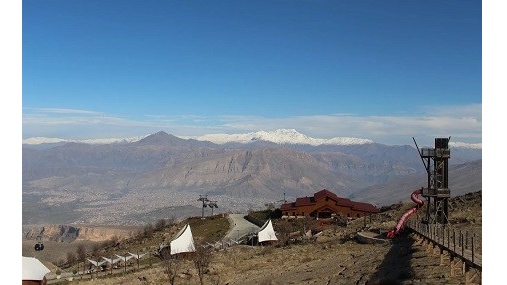Making tourism a bigger part of the Region’s economy has long been an ambition of the Kurdistan Regional Government (KRG). As projects resume after years of war and financial crisis, that target is firmly back on the agenda.
“We are endeavoring to further develop tourism in the Kurdistan Region, expecting tourism to approach 15 percent of gross domestic product (GDP) by 2025,” said Mawlawi Jabar Wahab, head of the General Board of Tourism.
This is roughly double the sector’s current size, he explained.
The industry is rebounding after a series of setbacks. Visitor numbers are now beginning to climb once more, topping three million in 2018. Tour operators and businesses are hoping to attract more visitors through the winter months – showing off the Region’s iconic snow-capped mountains.
Industry experts say strong branding by the government would help. A marketing campaign that dubbed the Kurdistan Region ‘The Other Iraq’ saw some success over a decade ago, introducing the world to Kurdistan’s unique culture and environment, while stressing its security.
The KRG’s strategy for the tourism sector is in the development stages. It stresses the need for more private sector involvement and developing Kurdistan’s natural assets like mountains, lakes, caves, archaeological sites, and heritage locations, while the government improves public infrastructure like roads, transportation networks, water, and electrical utilities.
The tourism board plans to adopt international standards to classify facilities and products to boost and maintain quality. It also wants the government to develop a regulatory framework to guide development and create an attractive environment for investors.
Going environmentally friendly would also help attract international tourists, but it will be challenge.
“Eco-tourism is the ‘in’ thing today. Developing eco-tourism in Kurdistan is important, it’s necessary, but difficult also,” said Suri.
He outlined several of the challenges, foremost being an over-reliance on plastic. Electricity production is also heavily dependent on fossil fuels.
“My dependency on non-eco-friendly items is very high,” said Suri.
It is very difficult for one location to go eco-friendly, he reasoned. It needs to be part of a broader movement that will make environmentally friendly options more readily available at an affordable price.
The tourism board was developing two eco-friendly projects before the crises hit. One was in Erbil while the other in Duhok was actually about 20 percent built. “Both have stopped due to the financial situation that emerged after ISIS war in 2014,” explained Wahab.
Rudaw
14/01/2019
















































































